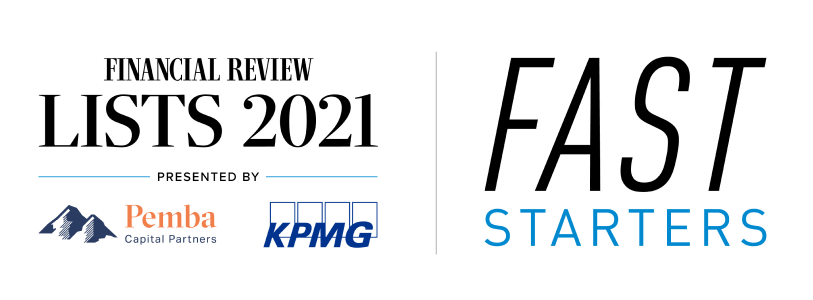Invoice Financing
Businesses of all sizes start to struggle when customers are late on payments but small businesses are particularly vulnerable. In fact, it’s one of the biggest causes of cash flow problems. A 2016 survey by East & Partners found that more than six out of 10 Australians regularly or occasionally draw upon personal finances, like a personal credit card, to support their business. This is often because they are trying to manage late-paying customers and chasing unpaid invoices.
Invoice financing is a way to alleviate some of the stress by allowing businesses to borrow money from a lender based on amount of money due from customers. With the right financing, businesses can grow on their own schedule.
What is invoice financing?
With invoice financing, businesses can use money owed to them as a loan asset, enabling them to get paid for outstanding invoices right away. That means businesses don’t get stuck waiting for or chasing clients. Invoice financing helps improve cash flow and can be used to pay employees or suppliers, cover slow periods or take advantage of growth opportunities.
Invoice financing is also known as accounts receivables financing. It is essentially, a secured loan as you are using your outstanding invoices as collateral for the loan. If approved, businesses generally receive about 85% of the value of their invoices, with most of the other 15% paid at a later date. The total loan amount depends on the amount owed to your business and the creditworthiness of your customers.
5 benefits of using invoice financing for small businesses
There are several benefits of using invoice financing to cover cash flow shortages or better manage late payments. Here are a few:
-
Flexibility
It allows you to give your customers this leeway in paying their bills without having to go broke yourself in the meantime.
-
Security
Because your invoices are used as collateral, invoice financing doesn’t put you at risk of losing valuable personal assets such as your home.
-
Accessibility
As the loan is tied to the value and quality of your invoices, businesses with less-than-perfect credit history are more likely to be approved.
-
Growth
Invoice funding provides finance that can grow with your sales turnover.
-
Predictability
Late payments can wreak havoc on your cashflow and business plans. Invoice financing allows you to achieve a more predictable cash flow.
Types of invoice financing loans
There are three main types of invoice financing that may be available to small businesses:
-
Asset-based lending (ABL)
This is most similar to a secured loan as a business uses its accounts receivable as an asset or collateral for the loan. There is often less flexibility in which receivables are committed to the lender.
-
Factoring
In this instance, a business will sell its accounts receivable to a funder and receive about 80% of the amount owed by customers, less processing fees. This typically provides businesses with a bit more flexibility but may include higher fees.
-
Selective receivable finance
This option provides the greatest level of flexibility to businesses as they can choose which receivables will be used for early repayment from the lender. Businesses can sell their invoice before the due date and without notifying the customer.
How does invoice financing work?
The process of applying for invoice financing is fairly easy and is typically less difficult than a traditional loan:
-
Determine your eligibility
The requirements vary between lenders, but as a guide you’ll need to have been operating for at least six months and be making around $5,000 in regular monthly sales to be eligible to apply.
-
Evaluate
Look at your accounts receivable to determine how much you might receive as a loan. This depends on the amount and quality of your invoices, as well as on your creditworthiness.
-
Apply
For some lenders this can be done online, and with little details required, is a quick process.
-
Receive approval and your funds
The money can be funded on the same day of approval.
-
Make repayments as your customers pay
Around 15% of the loan will be held and subjected to fees until your customers pays their invoice.
Key points to remember
With invoice financing, lenders will focus primarily on the value and quality of your invoiced business. That means it is important to have creditworthy clients.
Lenders may charge a processing fee as well as a ‘factor fee’, which is usually calculated on a weekly basis. How much you end up paying is based on how long your customers take to pay their invoice.
Another, less common type of invoice financing enables you to outsource the collection of payments to your financial institution and receive 100% of the owed invoices upfront.
Invoice financing doesn’t remove all risk from your business as your customer may never pay their invoice. This may result in an expensive collections process.
Invoice Financing FAQ
Is there a difference between invoice financing and invoice factoring?
The main differences between invoice financing and factoring come down to three elements: flexibility, control, and confidentiality. With invoice financing, you get to choose which invoices to finance and when, plus you usually deal directly with the customer for repayments. Because of this, customers typically won’t know you are using a financing company. On the other hand, invoice factoring requires invoice amounts to typically be advanced in the order received, plus the factoring company will usually have a debt collection service to retrieve unpaid invoices on your behalf. This allows for less confidentiality, as a customer will generally know you’re using a factoring company once they are contacted by this third party.
What collateral is needed for invoice financing? Do I have to provide anything else?
For invoice funding, the only collateral you need to provide is your outstanding invoices. Depending on the company providing you with invoice financing, you may also need a General Security Deed (an agreement between you and the lender) and a Director’s guarantee and indemnity. Always ensure you know everything that is required of you before you pursue financing.
Are there any fees associated with invoice financing for small businesses?
Depending on who you receive invoice financing from, you may be asked to pay fees relating to set-up, service, and finance.
What should I be aware of in relation to invoice funding?
There are many things you must take into consideration before you choose an invoice financing company. Do they offer month-to-month contracts so you can switch if their services are unsatisfactory? Is the company financially sound enough to support your business growth? It is also vital to make sure the company is familiar with the laws related to invoice financing.
My company has recently experienced rapid growth. Would invoice financing be a viable option?
For an SME to continue growing, they often need quick access to financing. Invoice financing is just one viable funding solution for businesses. To find out about a wider range of financing options, visit our Business Loans page.
Still not sure if invoice financing is right for you? Compare other types of loans to learn more.





